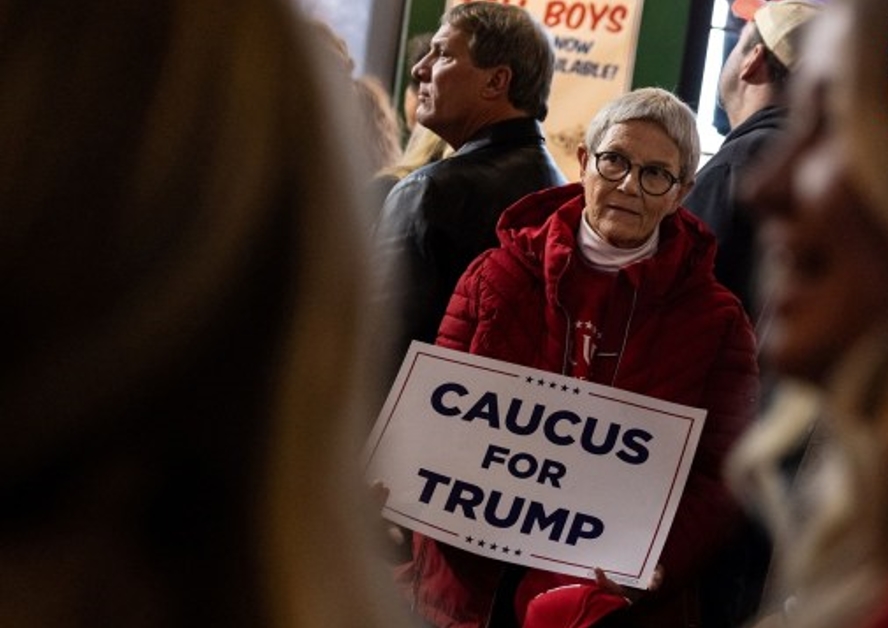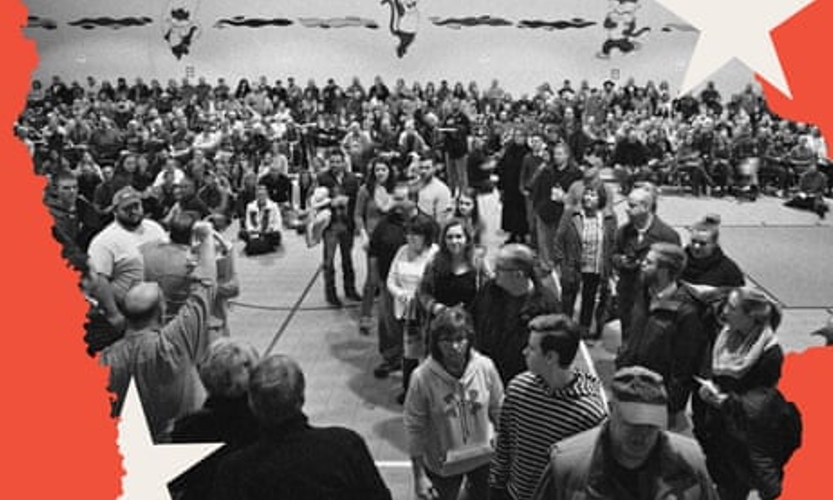Iowa’s historical role in shaping the presidential race remains complex, as its caucus system, despite its limitations, continues to play a pivotal but unpredictable role in the broader nomination process
This year, the Iowa caucuses are changing. On Monday (January 15, 2024), only Republicans will cast their votes, as Democrats have altered their primary calendar by shifting their initial votes to different states. Every four years, Iowa, located in America’s heartland, attracts attention as it kicks off the race for the White House. Since the 1970s, the state has conducted caucuses, marking the commencement of the extensive process through which Republicans and Democrats select their nominees for the presidential election. In the United States, elections are primarily delegated to the states, granted they adhere to the US Constitution. While most states employ the primary system, where voters cast their ballots at polling locations, about one in five states opt for the caucus system.
You can also read: Cluster of lost cities found in Amazon rainforest
The caucus system represents a more old-fashioned voting approach, where participants gather in a party-managed room, aligning themselves with a candidate. These groups then present speeches advocating for their candidates in an attempt to garner support from other groups and sway undecided voters who choose to stand or sit together.
What’s the Distinction Between Caucuses and Primaries?
Caucuses and primaries serve as the mechanisms through which the 50 American states (along with Washington DC and outlying territories) select the nominees for President from the two major parties. The primary race, occurring from January 15 to June 8 this year, is significant for the Republican party in 2024, as the Democrats already have their nominee, President Joe Biden. Donald Trump, the leading Republican presidential candidate, holds a considerable lead over other contenders, with FiveThirtyEight reporting 52% support in Iowa, more than 30 percentage points ahead of Nikki Haley and Ron DeSantis.

While some states opt for primaries and others for caucuses, a third group employs a combination of both systems. Primary elections are government-conducted, whereas caucuses are private events organized by the parties.
In primaries, voters visit polling stations to mark their preferred candidate. In contrast, caucuses involve a more elaborate process where voters gather at public locations like school gymnasiums, churches, and community centers, engage in discussions about candidate preferences, and openly indicate their choice during the voting phase.
The caucus system tends to favor candidates with strong and active support bases, facing criticism for susceptibility to intimidation and inconveniences for individuals with shift work or parental responsibilities, making it challenging to attend unpredictable-length in-person meetings.
Iowa Caucuses: Different This Year
As previously mentioned, the Republican caucuses are set for Monday (15th January 2023), while the Democratic caucuses will be conducted by mail. The process kicks off on January 12, with the first ballots mailed to voters and concluding on March 5. On Monday, Iowa Democrats can participate in in-person gatherings for other party matters, but the selection of a presidential candidate will not occur at that time.
South Carolina and Nevada, the first two states to vote for a Democratic presidential nominee, will hold primaries on February 3 and February 6, respectively. Notably, New Hampshire, despite the opportunity to vote on the same day as Nevada, has opted for an unsanctioned primary on January 23, maintaining its first-in-the-nation primary status as per state law, as reported by The New York Times.
The shift in the Democratic primary calendar aims to include states with a more racially diverse population than Iowa and New Hampshire, which are predominantly white. In a letter last year, President Biden advocated for this change, emphasizing the need for the party to “ensure that voters of color have a voice in choosing our nominee much earlier in the process and throughout the entire early window.”
Why is Iowa the Initial State for Republicans to Hold Caucuses?
Iowa’s caucuses, traditionally held, gained national prominence in the 1970s. To enhance inclusivity, the Democratic Party expanded the intricacies of precinct meetings, necessitating an earlier commencement. In 1972, during George McGovern’s nomination as the Democratic candidate, Iowa inadvertently became the pioneer state to conduct caucuses. Subsequently, it has consistently maintained its position as the first state in the nation to hold caucuses, despite other states advancing their scheduling.
Caucuses and Iowa Influence
The caucuses serve as the initial gauge of voters’ backing for presidential contenders. Traditionally, these candidates have campaigned extensively throughout the state, gauging the resonance of their messages and appeal. Those who perform poorly often choose to withdraw from the competition.
Yet, for Republicans, the state has not proven to be a reliable indicator of nationwide support. None of the victors in the last three Iowa caucuses – in 2016, 2012, and 2008 – ultimately secured the party’s nomination. This is largely attributed to Iowa’s evangelical Christian community, which holds significant sway in the process and tends to support the most socially conservative candidate in the lineup.
Moreover, owing to its comparatively smaller population, Iowa sends fewer delegates to the national convention than states like Florida or Texas, resulting in an outsized influence on the nominating process.

lustration: Guardian Design/Getty Images
Conclusion
In conclusion, the 2024 Iowa caucuses will mark a significant departure from tradition, with only Republicans participating in the in-person caucuses on January 15. Democrats have opted for a mail-in process, aligning with efforts to diversify the early primary calendar. Iowa’s historical role in shaping the presidential race remains complex, as its caucus system, despite its limitations, continues to play a pivotal but unpredictable role in the broader nomination process.


